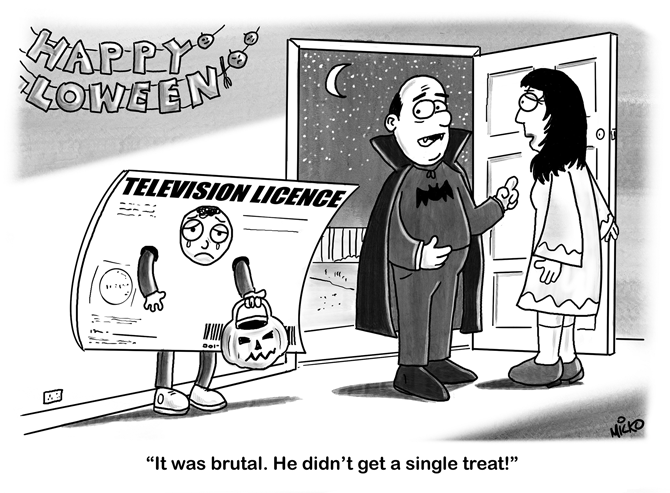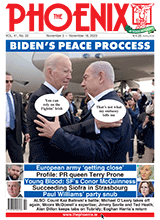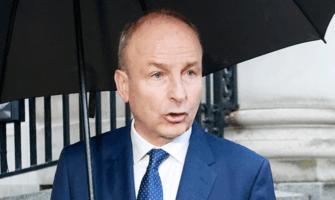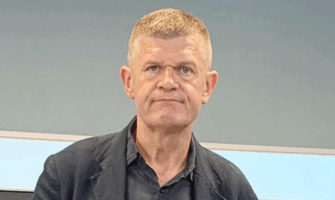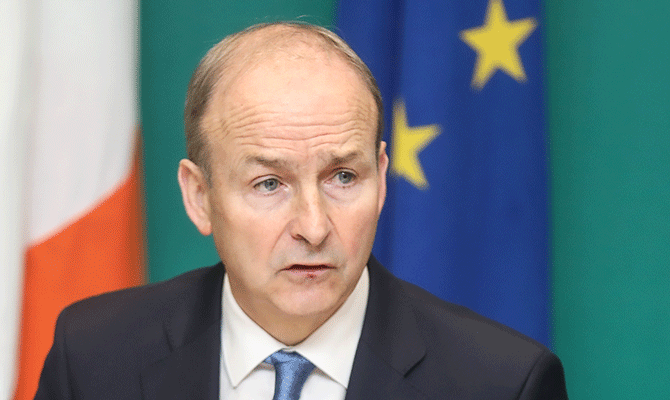
Micheal Martin
THERE WERE two types of media reaction to Dame Louise Richardson’s recent report of Micheál Martin’s forum on international security. One was to play it down to virtual non-existence; the other was an angry rant from Irish Times political editor Pat Leahy. Both responses were a direct result of the most disappointing (to Iveagh House) retreat by Richardson from the aggressive, militarist agenda that the forum organisers had envisaged and which would also have been to her taste. But Richardson could not possibly present events in and around the forum as anything but a rejection of the drive to abandon Irish neutrality. This was because Martin’s forum betrayed such a crude, unqualified bias that it blew up in his face.
As Goldhawk pointed out (see The Phoenix 30/6/23), Martin’s rejection of his own proposal for a citizens’ assembly on neutrality and security and the creation instead of a forum with Government-nominated speakers showed that he did not trust a citizens’ assembly to give him the result he wanted. He then went full steam ahead – despite opinion polls repeatedly showing public attachment to neutrality – with a forum overwhelmingly militarist and pro-western.
This doubly highlighted a general suspicion that neutrality was under attack and that the Government, or at the very least foreign minister Martin, was determined to ram home this agenda.
Instead of a stealthy, carefully stage-managed affair, the entire exercise came over as a blatant drive by domestic and foreign ‘experts’ to complete the press ganging of Ireland into the western military block. And it gave the neutrality lobby its best platform and rush of public support for a very long time.
In his General Patton speech to IT readers, Leahy became most exercised in his attack on “assorted peace lovers” and accused them of trying to “prevent the discussions taking place”, which is simply not the case. Ramping up the sarcasm, he opined that Richardson’s comparatively mild report meant one of two things: that loud shouting by such as People Before Profit and President Michael D Higgins had sabotaged a plot to join Nato or, alternatively, that no such plot existed in the first place.
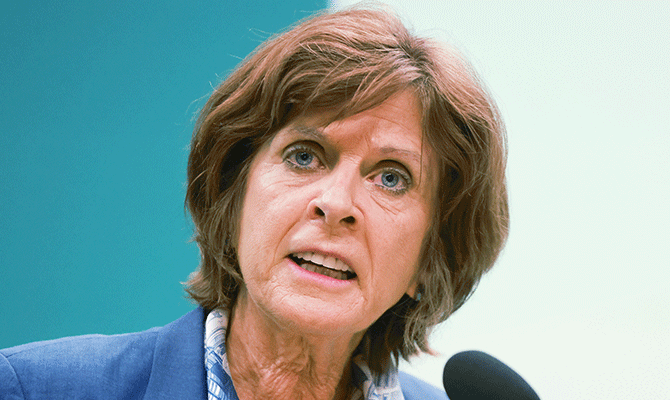
Dame Louise Richardson
Perhaps the IT political editor might consider a third theory, namely, that Tánaiste Martin underestimates Irish people’s attachment to neutrality (as well as their intelligence) and that the forum initiative was a bungled affair that has underlined public support for a peaceful foreign and security policy.
Leahy’s rant also ignores some of the shrewder voices from within his own newspaper, who seem to have recognised that the paper of record is sometimes way out of touch with popular opinion on matters military.
Leahy has poured sarcastic scorn on the contention that the Government agenda is to undermine neutrality. But following the forum and the explosive debate around it, IT editor Ruadhán Mac Cormaic wrote an editorial that criticised Higgins for contradicting Government policy. More fundamentally, however, Mac Cormaic argued that the forum was “the latest in what seems like a series of steps towards changing the long standing policy on neutrality”.
Equally significant was the revelation that the IT’s perennial history sage, the highly regarded Diarmaid Ferriter, had declined an invitation to speak at the forum as it was not broad enough. He even supported Higgins’s criticism of Richardson chairing the event given her British title. (Are Ferriter and Mac Cormaic secret members of PBP or Sinn Féin? Or are they just goddam peace-lovers?)
Leahy’s article concluded with a very mature comment about the need for “adult conversations” grounded in political reality.
